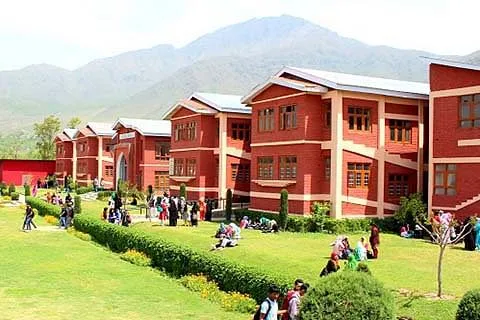A ‘Memorandum of Understanding’ (MoU) is defined as a non-binding agreement between two parties. It is typically signed to form a new partnership or to conduct a business transaction. The industrial world is typically characterised with ‘n’ number of MoUs between the industry and the academia.
The academia (which predominantly includes colleges and universities) is the producer and manufacturer of the human capital. The characteristics of academia typically determine the industrial output.
An informed academia with vibrant teaching-training processes typically sends skilled labor to the industry. On the contrary a stagnant academia sends unskilled or skill-mismatched labor force to the industry.
While the former leads to a sustainable industrial growth, the latter is associated with underdevelopment.
The industry-academia nexus culture in almost inexistent in the developing world and India is no different from it. However, lately India has been showing some slight increase in the research and development culture.
Simultaneously there has been a slightly growing awareness among the stakeholders about the need and necessity of linkages between the research and development, innovation and the application of these two aspects practically in the industry.
The pre-requisite for a sustainable and long-run industrial stability is a culture of domestic innovation and application. The source and inflow of this innovation has to be within the domestic economy which predominantly includes the academia.
One of the most common channels of establishing the industry-academia nexus is through the adoption, validation and signing of the Memorandum of Understandings.
A trend of this sort hasn’t been witnessed in the valley of Kashmir over the past decades. However, lately the harbinger of change has been the Islamic University of Science and Technology (IUST).
With its growing academic presence in the region and across the country, the IUST has been endeavoring upon the creation of multiple academia-industry nexuses.
From economic to technical and policy to practical various MoUs have been signed and upheld by the university and its various centers.
One of the most significant and potentially dynamic is the MoU signed between the ‘Center for Innovation and Entrepreneurship Development’ IUST (CIED-IUST, henceforth) and the ‘Industrial Association Lassipora’ (IGC-L, henceforth).
The MoU fundamentally rests on three broad areas, viz. (a) Skill Development, (b) Entrepreneurship, and (c) Innovation/ Research & Development. The targeted population benefitting from the MoU is primarily the students of IUST and subsequently given the expected spill-overs and positive reinforcements over time it is expected of the MoU to bring in innovative technology and policy insights from the IUST itself.
While on the side of academia, IUST has been utilising most of its human capital resource from the focal area departments at the moment, the IGC-L general body council has been performing exceptionally well in bringing together every stakeholder from media through academic to core industry.
While the need for such a nexus has been felt for a long time but the initiating steps have been absent from both the industry and academia till date. However with the establishment of CIED-IUST and the elected general body of IGC-L, the first step towards a long-run nexus has been taken.
Currently (which is also the initial stage) the focal areas of the MoU functioning are (i) Artificial Intelligence, (ii) Machine Learning, and (iii) Internet of Things.
The primary lens to visualise the problem is through the mandates of the New Education Policy which is skill and market centric.
These focal areas have been targeted in order to make a string kick start in the direction of inculcating a sustainable entrepreneurship culture in the valley, run by the indigenous and primary stakeholders.
The MoU has been designed in such a way that it can be rectified and edited persistently by the mutual agreement of the IUST and IGC.
On the ground level the immediate plan is to introduce the open elective courses across the departments of IUST that are highly market centric deriving the information from the working of IGC-L.
Training and development drives along with capacity building program are also on the current agenda. Mentoring services towards entrepreneurship to the passing students of the university also falls under the focal category.
In an attempt to make the initiative an outreach program of sorts, the training and development programs also fall within the immediate emphasis of the MoU.
Though the relevance and importance of this MoU has significance of its own, the scope for improvement is infinite. Apart from being more binding on both the parties the focus of the MoU must extend to Management and Social Science subjects.
The emphasis of the research activities in the university must be shifted specifically in a focal manner towards the specific genres as mentioned in the MoU in order to produce a focused knowledge pool.
There is also an immediate need to create a data pool from the industry in real time and analyze the same in the academia and arrive at relevant policy suggestions. The scope and need of brain-storming between various stakeholders is always undisputable and highly productive.
Dhaar Mehak M. is Faculty in the Department of Economics, Islamic University of Science and Technology. .
Ideas expressed are author’s own and do not reflect the ideas/thoughts of the institution she is working for.
Disclaimer: The views and opinions expressed in this article are the personal opinions of the author.
The facts, analysis, assumptions and perspective appearing in the article do not reflect the views of GK.






